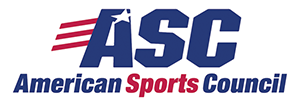CSC Chairman Takes on Myles Brand’s Code of Silence on Title IX
Over at Inside Higher Education, the Web site is running a piece from College Sports Council chairman Eric Pearson on NCAA President Myles Brand’s recent statements on how member schools shouldn’t blame Title IX for future cuts in men’s athletic programs.
The entire text of the article appears below:
Myles Brand’s Code of Silence
By Eric Pearson
Myles Brand, president of the National Collegiate Athletic Association, has been embarking lately on a peculiar public relations campaign. With NCAA member institutions increasingly worried about the consequences of Title IX, a federal statute that governs the gender distribution of athletic opportunity, Brand has been loudly urging them all to, well, shut up about it.
On November 21, Brand told USA Today, “My expectation is that over the next year or two we are going to see more cuts of men’s teams and so I am trying, frankly, to pre-empt the argument against Title IX … and dissuade universities from going public with this approach.”
Brand’s forecast was based on shrinking budgets in a period of economic decline. But it’s not the first time he has tried to silence the debate about Title IX enforcement. When the NCAA and the U.S. Olympic Committee met in 2005 to discuss the tragic and ongoing decimation of men’s collegiate teams, Brand insisted on this ground rule: “While the impacts of Title IX are likely to be relevant to the Task Force’s deliberations, consideration of the merits or scope of the law as enforced and proposals for the modification of the law or its enforcement are not.”
Incredibly, Brand has even stiff-armed the federal government itself when its representatives have asked him for straight talk on Title IX. The U.S. Commission on Civil Rights called the NCAA to testify last May about why Brand has fought against colleges’ surveying their own students on athletic interest, which is an alternative way to comply with the law. Asked point blank how institutions ought to solicit student input, the NCAA offered no answer. Last year, when the U.S. Government Accountability Office asked the NCAA for school-by-school data on athletic participation — the key measure of Title IX’s impact — the NCAA refused to provide it and to this day keeps the information under lock and key.
Brand’s intransigence seems an especially troubling posture for a former university president, whom you might hope would regard open and free discourse as a high virtue. It is stranger still since in his current office he is supposed to be fostering the interests of college athletes, not papering over the harms that are causing teams to be eliminated.
In the six years that Brand has led the NCAA, the lion’s share of teams that have been eliminated are men’s programs — which many coaches and administrators say is a result of Title IX’s strict gender requirements. Many of the men’s teams that remain have to endure a fixed roster cap that shuts out male athletes in order to meet Title IX’s proportionality rule.
For their part, colleges around the country are agonized about the compliance bind they face. Universities such as Fresno State, Rutgers, James Madison and Ohio have said explicitly and with real emotion that Title IX is the major factor in their decision to select men’s teams for elimination. These wrenching decisions are being made by conscientious administrators who, it must be noted, do themselves no favors by citing the truth about Title IX enforcement. Their candor earns them the wrath of advocacy groups on both sides of the issue, including ours.
But on his blog, the Double-A Zone, Brand effectively calls those administrators liars. “Title IX is an excuse and I’m not happy that some schools have come out and blamed Title IX for the cutting of sports,” he said on his podcast. “It isn’t Title IX that’s doing it.”
As for the athletes themselves, Brand doesn’t want to hear from them, either. Although the spirit of Title IX is to accommodate the interest of students that wish to participate, Brand has fought tooth and nail against allowing colleges to survey those students directly. The top objection stated in his open letter on the matter? “[It] permits schools to use surveys alone … as a means to assess female students’ interest in sports.”
Got that? Simply asking young women whether they want to play sports is too much for Brand. His second reason is that surveys might somehow perpetuate “stereotypes that discourage [women] from participating.” That’s pretty galling from a man who apparently believes that young women can’t think for themselves and so others should make decisions for them.
Even though the Department of Education — the enforcers of the Title IX regulations — has encouraged schools to implement surveys, only one of Brand’s member institutions, Western Illinois, has dared to defy his edict.
But Brand found much more like-minded company during a trip he made a few weeks ago to China as a guest of their Ministry of Education. “As I talked with those both inside and outside the universities, there was one thing that … distinguished the current social milieu in America from that of China,” Brand wrote on his blog. “There was almost a complete lack of cynicism … a common attitude that I found remarkably refreshing. There was some willingness to disagree … with those in authority but it always occurred not with the kind of cynicism that takes any situation, even a very good one, and focuses on the negative.”
Maybe we shouldn’t be surprised that Brand admires a totalitarian government’s methods of dictating public discourse. After all, he comes from the world of academia, where campus speech codes are all too common. Perhaps the NCAA would like a more sweeping edict: thou shalt not disagree with Myles Brand.
Eric Pearson is chairman of College Sports Council, a coalition of coaches, athletes and parents that seeks changes in Title IX.
